The first step to understanding how to lose weight without eating fruits or vegetables is to understand weight loss, which occurs when you burn more calories than you consume.
While fruits and vegetables are low in calories and high in nutrients, there are other ways that can lose weight without having to eat them.
Protein-rich foods such as lean meats, fish, eggs, and beans can help you feel full and satisfied, reducing the likelihood of overeating. Whole grains and legumes are also high in fiber, which can aid in digestion and promote feelings of fullness. Incorporating healthy fats, such as avocados and nuts, can also help you feel full and satisfied while providing essential nutrients for your body. Staying hydrated, exercising regularly, and managing stress can also aid in weight loss.
KEY TAKEAWAYS
- Understanding how weight loss occurs will help you achieve your goals.
- A balanced diet that includes protein-rich foods, whole grains, legumes, and healthy fats can help you lose weight without consuming fruits and vegetables.
- Staying hydrated, exercising regularly, avoiding sugar and managing stress can also aid in weight loss.
How to Lose Weight Without Eating Fruits or Vegetables – A Meal Plan
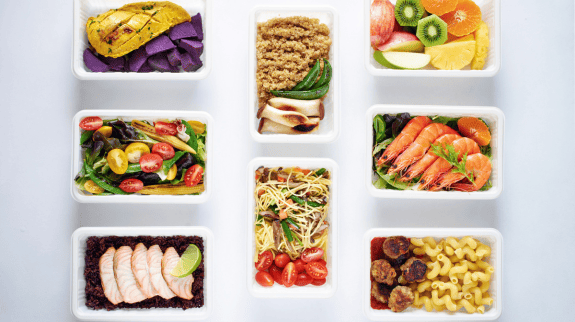
Losing weight without eating fruits and vegetables may seem like a daunting task, but it is possible. The key to success is to focus on nutrient-dense, low-calorie foods that will keep you full and satisfied. Here are some meal planning ideas to help you get started.
Breakfast Options
- Eggs: Eggs are a great source of protein and can be cooked in many different ways. Try scrambled eggs with spinach, mushrooms, and low-fat cheese.
- Oatmeal: Oatmeal is a filling breakfast option that can be customized to your liking. Add nuts, seeds, and low-sugar sweeteners like honey or stevia for added flavor.
- Greek Yogurt: Greek yogurt is high in protein and low in calories. Mix in some nuts and berries for added texture and flavor.
Lunch and Dinner Ideas
- Grilled Chicken: Grilled chicken is a lean protein source that can be paired with a variety of sides. Try grilled chicken with roasted sweet potatoes and a side salad.
- Fish: Fish is another lean protein source that is high in omega-3 fatty acids. Try baked salmon with quinoa and roasted vegetables.
- Turkey Chili: Turkey chili is a hearty meal that can be made with lean ground turkey, beans, and low-sugar tomatoes. Serve with a side of whole-grain bread.
Snacks and Desserts
- Nuts: Nuts are a great source of healthy fats and protein. Choose raw or roasted nuts and avoid those with added sugars or salt.
- Dark Chocolate: Dark chocolate is a low-sugar dessert option that is high in antioxidants. Look for dark chocolate with at least 70% cocoa solids.
- Popcorn: Popcorn is a low-calorie snack that can be flavored with spices like cinnamon or chili powder.
Understanding Weight Loss
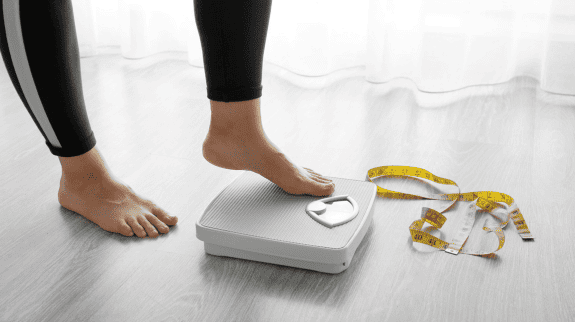
Losing weight can be a challenging process, especially for those who dislike fruits and vegetables. However, it is possible to lose weight without consuming these foods. To aid in our weight loss journey is it also important to understand the basics of weight loss.
Weight loss occurs when the body burns more calories than it consumes so in order to lose weight, it is important to create a calorie deficit. This can be achieved through a combination of diet and exercise. A calorie deficit of 500 to 1000 of fewer calories, per day can lead to a weight loss of 1 to 2 pounds per week.
There are a variety of diets and eating plans that can help achieve a calorie deficit. Some popular options include the carnivore diet, low-carb diets, intermittent fasting, and portion control. It is important to choose something that is sustainable and fits with your lifestyle and preferences.
In addition to diet, exercise can also play a crucial role in weight loss. Regular physical activity can help burn calories and boost metabolism, leading to weight loss. It is recommended to engage in at least 150 minutes of moderate intensity (Zone 2) exercise per week.
Importance of Balanced Diet
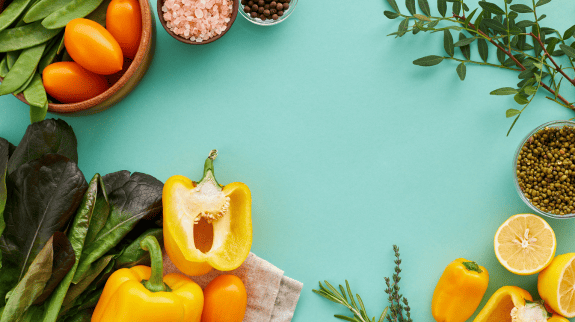
Maintaining a balanced diet is crucial for overall health and wellness. A balanced diet should include a variety of foods from all food groups, including carbohydrates, proteins, fats, vitamins, and minerals. Each food group provides different nutrients that are essential for the proper functioning of the body.
Carbohydrates are the primary source of energy for the body. They are found in foods such as bread, rice, pasta, and potatoes.
Proteins are essential for building and repairing tissues in the body. They are found in foods such as meat, fish, eggs, and beans.
Fats are also an important source of energy and are necessary for the absorption of certain vitamins. They are found in foods such as nuts, seeds, and oils.
Vitamins and minerals are essential for maintaining good health. They are found in a variety of foods, including fruits, vegetables, and dairy products. For example, vitamin C is found in citrus fruits, while calcium is found in milk and dairy products.
A balanced diet helps to ensure that the body is getting all of the nutrients it needs to function properly. It can also help to prevent chronic diseases such as heart disease, diabetes, and certain types of cancer.
Whole Grains and Legumes (Carbohydrates)
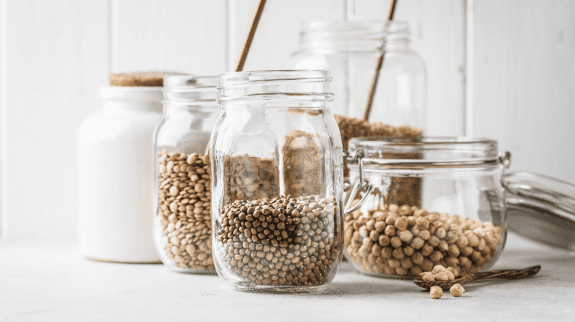
When it comes to losing weight without eating fruits and vegetables, whole grains and legumes are great options. They are rich in fiber, protein, and other essential nutrients that can help keep you full and satisfied between meals. Here are some of the best whole grains and legumes to include in your diet:
Brown Rice
Brown rice is a great source of fiber and complex carbohydrates, which can help keep you full and energized throughout the day. It is also rich in vitamins and minerals, including B vitamins, magnesium, and selenium. To incorporate brown rice into your diet, try swapping it for white rice in your favorite recipes or using it as a base for stir-fries, salads, and bowls.
Quinoa
Quinoa is a gluten-free grain that is packed with protein, fiber, and other essential nutrients. It is also a good source of antioxidants, which can help protect your cells from damage caused by free radicals. To enjoy quinoa, try adding it to salads, soups, and stews, or using it as a substitute for rice or pasta.
Beans
Beans are a versatile and inexpensive source of protein, fiber, and other important nutrients. They come in many varieties, including black beans, chickpeas, kidney beans, and lentils, and can be used in a variety of dishes, such as soups, stews, salads, and dips. To incorporate more beans into your diet, try adding them to your favorite recipes or using them as a base for vegetarian burgers and patties.
Overall, whole grains like vegetables and legumes are nutritious and satisfying foods that can help support your weight loss goals. By including them in your diet, you can enjoy a variety of delicious and healthy meals without relying on fruits and vegetables.
Protein-Rich Foods
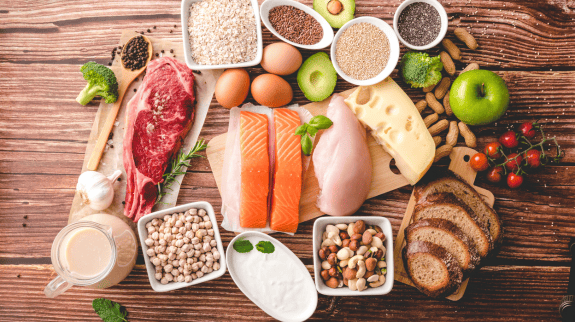
When it comes to how to lose weight without eating fruits and vegetables, protein-rich foods can be a great option. Not only do they provide essential nutrients, but they also help keep you feeling full and satisfied.
Lean Meats
Lean meats are an excellent source of protein and can be a great addition to any weight loss diet. Some of the best options include chicken breast, turkey breast, lean cuts of beef, and pork tenderloin.
Also read: What is the Carnivore Diet
These meats are low in fat and calories, making them a great choice for those looking to lose weight.
Here is a table of some popular lean meats and their nutritional information per 3-ounce serving:
| Meat | Calories | Protein (g) | Fat (g) |
|---|---|---|---|
| Chicken breast | 140 | 26 | 3 |
| Turkey breast | 120 | 26 | 1 |
| Beef tenderloin | 150 | 25 | 6 |
| Pork tenderloin | 120 | 22 | 3 |
Eggs
Eggs are another great source of protein and can be a versatile addition to any meal. They are also low in calories and high in nutrients, making them a great choice for weight loss.
Here are some nutritional facts about eggs:
- One large egg contains about 6 grams of protein and only 70 calories.
- Eggs are also a good source of vitamin D, which is important for strong bones and a healthy immune system.
- Eating eggs for breakfast can help you feel full and satisfied throughout the morning, which may help you eat less later in the day.
Dairy Products
Dairy products are another great source of protein and can be incorporated into a weight loss diet in a variety of ways. Some of the best options include: low fat dairy full-fat milk, Greek yogurt, and cottage cheese.
Here is a table of some popular dairy products and their nutritional information per 1-cup serving:
Overall, incorporating protein-rich foods into a weight loss diet can be a great way to lose weight without eating fruits and vegetables. Lean meats, eggs, and dairy products are all great options that can provide essential nutrients while keeping you feeling full and satisfied.
| Dairy Product | Calories | Protein (g) | Fat (g) |
|---|---|---|---|
| Low-fat milk | 100 | 8 | 2 |
| Greek yogurt | 130 | 23 | 0 |
| Cottage cheese | 160 | 28 | 2 |
Healthy Fats
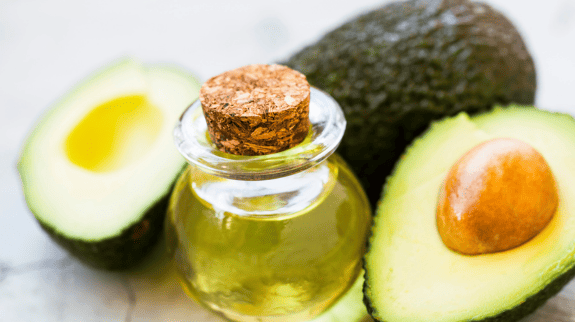
When it comes to losing weight without eating fruits and vegetables, healthy fats can be a great addition to your diet. Here are some of the best sources of healthy fats:
Avocados
Avocados are a great source of monounsaturated fats, which can help reduce inflammation in the body and promote heart health. They are also high in fiber, which can help keep you feeling full and satisfied. In fact, studies have shown that adding avocado to your meals can help reduce hunger and increase feelings of fullness.
Nuts and Seeds
Nuts and seeds are another great source of healthy fats. They are high in protein and fiber, which can also help keep you feeling full and satisfied. Some of the best options include almonds, walnuts, chia seeds, and flaxseeds.
Olive Oil
Olive oil is a staple in the Mediterranean diet, which is known for its health benefits. It is high in monounsaturated fats and antioxidants, which can help reduce inflammation in the body and promote heart health. It is also a great source of healthy fats for cooking and salad dressings.
When incorporating healthy fats into your diet, it’s important to remember that they are still high in calories. So, it’s important to consume them in moderation and to balance them with other healthy foods.
Conclusion
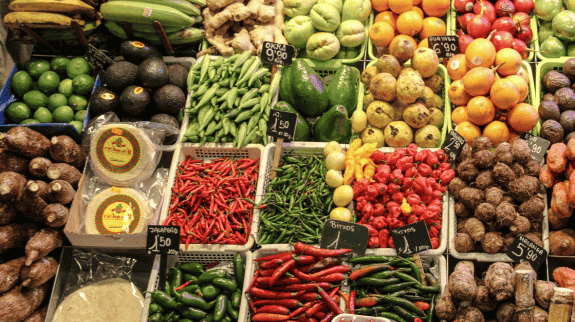
While fruits and vegetables are important components of a healthy diet, not everyone enjoys eating them. Fortunately, there are still ways to lose weight without incorporating these foods into your meals.
One strategy is to focus on lean protein sources and healthy fats. These foods can help keep you feeling full and satisfied, which can reduce the likelihood of overeating. Examples of lean protein sources include chicken, fish, and tofu, while healthy fat sources include avocado, nuts, and olive oil.
Another approach is to incorporate lower-sugar fruits into your diet, such as berries, grapefruit, and apples. These fruits can provide some of the same benefits as vegetables, including vitamins, minerals, and fiber.
It’s also important to be mindful of portion sizes and to limit intake of processed and high-calorie foods. These foods can contribute to weight gain and may make it more difficult to achieve weight loss goals.
Overall, while fruits and vegetables are important for optimal health, there are still ways to achieve weight loss without incorporating them into your diet. By focusing on lean protein sources, healthy fats, and lower-sugar fruits, individuals can still achieve their weight loss goals while maintaining a balanced and satisfying diet.
Frequently Asked Questions
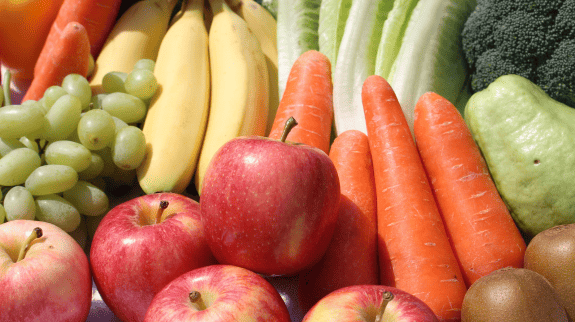
How can I lose weight without eating fruits and vegetables?
Losing weight without eating fruits and vegetables is possible, but it requires a well-planned diet that includes other nutrient-dense foods. The key to weight loss is creating a calorie deficit, which means burning more calories than you consume. This can be achieved by reducing your overall calorie intake and increasing physical activity.
Is it possible to have a healthy diet without fruits and vegetables?
While fruits and vegetables are important sources of vitamins, minerals, and fiber, it is possible to have a healthy diet without them. However, it is important to replace them with other nutrient-dense foods that provide similar benefits. For example, whole grains, lean proteins, and healthy fats can provide the necessary nutrients for weight loss.
What are some alternatives to fruits and vegetables for weight loss?
There are many alternatives to fruits and vegetables for weight loss. Some examples include whole grains, lean proteins, healthy fats, and low-sugar fruits such as berries and grapefruit. These foods provide essential nutrients and can help promote weight loss.
How can I get the necessary nutrients for weight loss without eating fruits and vegetables?
To get the necessary nutrients for weight loss without eating fruits and vegetables, it is important to include other nutrient-dense foods in your diet. Whole grains, lean proteins, and healthy fats are good sources of essential nutrients such as protein, fiber, vitamins, and minerals. It is also important to consider taking a multivitamin or other dietary supplements to ensure that you are getting all the necessary nutrients.
What are some recipes for a no-fruit, no-vegetable diet?
There are many recipes for a no-fruit, no-vegetable diet that are both healthy and satisfying. Some examples taste good and include grilled chicken with quinoa and roasted sweet potatoes, salmon with brown rice and green beans, and turkey chili with whole grain crackers. These recipes are easy to prepare and provide a balanced mix of nutrients.
Are there any risks to losing weight without eating fruits and vegetables?
While it is possible to lose weight without eating fruits and vegetables, it is important to be aware of the potential risks. Fruits and vegetables provide essential nutrients that are important for overall health and well-being. A diet that excludes these foods may increase the risk of nutrient deficiencies and other health problems. It is important to consult with a healthcare professional before starting any new diet or weight loss program.

